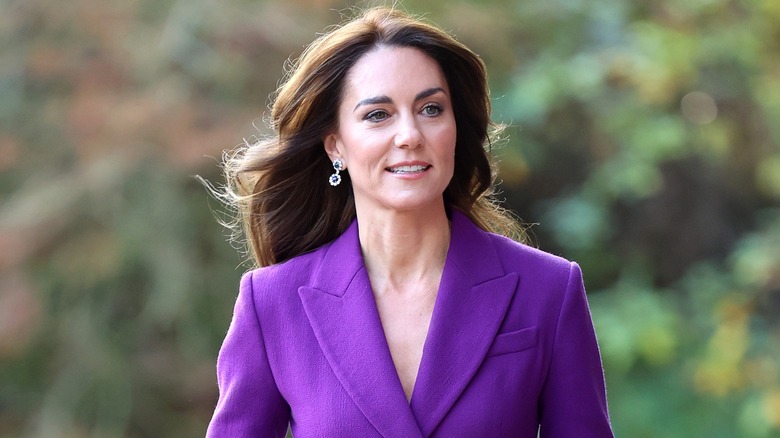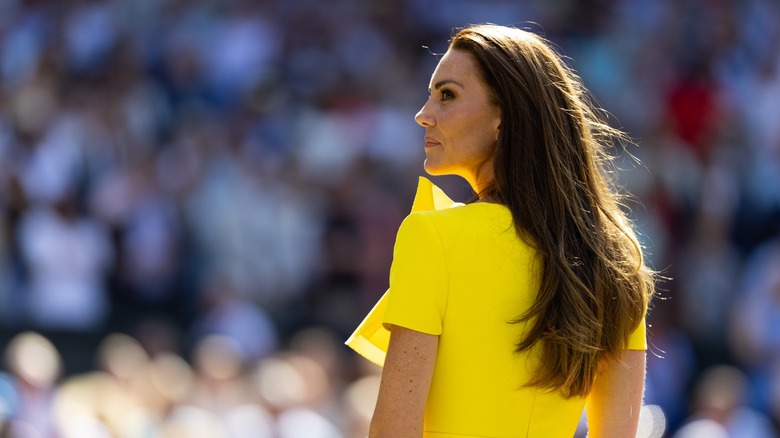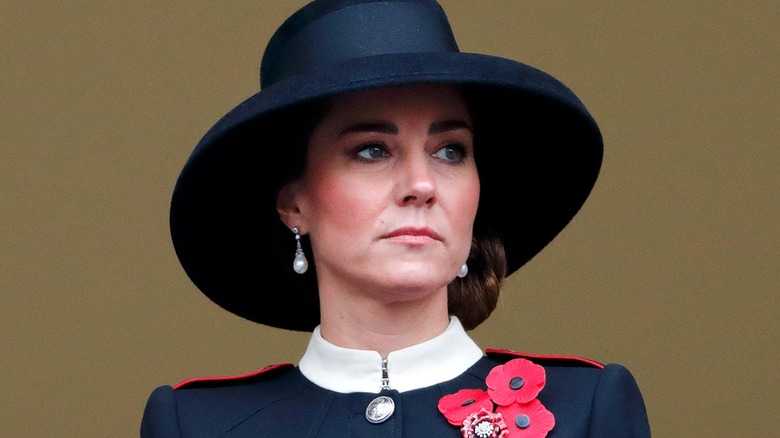Oncologist Tells Us The Challenges Kate Middleton Will Likely Face Amid Treatment
Following weeks of public speculation about her whereabouts, Catherine, Princess of Wales shared a video statement on Instagram on March 22, 2024, disclosing her heartbreaking health condition. Kate shared that after undergoing planned abdominal surgery in January 2024, post-operative tests revealed the presence of an undisclosed type of cancer in the area. The royal also mentioned that she was going through preventative chemotherapy.
Certain types of chemotherapy are known for their painful side effects, and as the concern surrounding Kate's continued absence from the public eye is not diminishing in the wake of her cancer diagnosis, we spoke to Eleonora Teplinsky, M.D., a medical expert in the field, about the challenges the princess will likely face amid treatment.
Teplinsky, who is the head of Breast and Gynecologic Medical Oncology at Valley Health System in Paramus, N.J., and a clinical assistant professor of medicine at Icahn School of Medicine at Mount Sinai, told The List that certain side effects of chemotherapy are expected to affect the royal. "While each chemotherapy agent has specific side effects, there are some general chemotherapy side effects, which may include hair loss, fatigue, loss of appetite or taste, gastrointestinal side effects such as nausea, vomiting, diarrhea, and constipation, and low blood counts, which create an immunosuppressed state," Teplinsky explained. However, there are other factors to take into account.
Limited details make predicting Kate's chemotherapy side effects difficult, says Teplinsky
According to Eleonora Teplinsky, M.D., who goes by @drteplinsky on Instagram, the specific side effects of chemotherapy are influenced by the type of cancer with which the patient was diagnosed. In the case of Catherine, Princess of Wales, that specific information hasn't been shared with the public. "There are many cancers that can be present in the abdominal area," the oncologist noted, emphasizing the fact that there isn't "enough information to answer the question about what type of cancer it may be."
In the video statement posted to Instagram, Kate said that she was "in the early stages" of preventative chemotherapy, also known as adjuvant chemotherapy. The specific treatment is commonly administered to kill any remaining or unaccounted-for cancer cells in the patient's body after a primary cancer treatment, which is typically a surgical intervention. Other than lessening the chances of cancer spreading throughout the patient's system, preventative chemotherapy also lowers the risk of the disease returning. It is typically given three to five weeks following the primary treatment, and the duration can vary depending on the type and stage of cancer.
Given the limited information about Kate's cancer diagnosis, Teplinsky stressed that "it is not possible to speak on prognosis or outcome," including the duration and specific challenges of her recovery process.
Kate's mental health could also be impacted by the diagnosis
Chemotherapy affects not only cancerous cells but also healthy ones, meaning that Catherine, Princess of Wales is likely to experience some of the more general side effects of the treatment despite it being a preventative measure. For instance, certain chemotherapy medications can decrease red blood cell count, leading to anemia, which manifests as fatigue and is a common side effect of the treatment. Additionally, chemotherapy can also impact white blood cells, which are responsible for the body's immune system. With the immune system weakened, a patient undergoing chemotherapy can be more susceptible to infections, another frequently experienced chemotherapy side effect.
In addition to the physical side effects, cancer can also affect mental health, as Eleonora Teplinksy, M.D., pointed out. "Navigating both the physical and mental health impacts of a cancer diagnosis and treatment can be very challenging both during active treatment and during the survivorship period," the oncologist said.
Notably, a body language expert we spoke to noted signs of stress in Kate's video announcement, particularly in her facial expressions. However, despite facing her own health crisis, Kate concluded her poignant message by reminding cancer patients they are not alone, stating, "For everyone facing this disease, in whatever form, please do not lose faith or hope."


